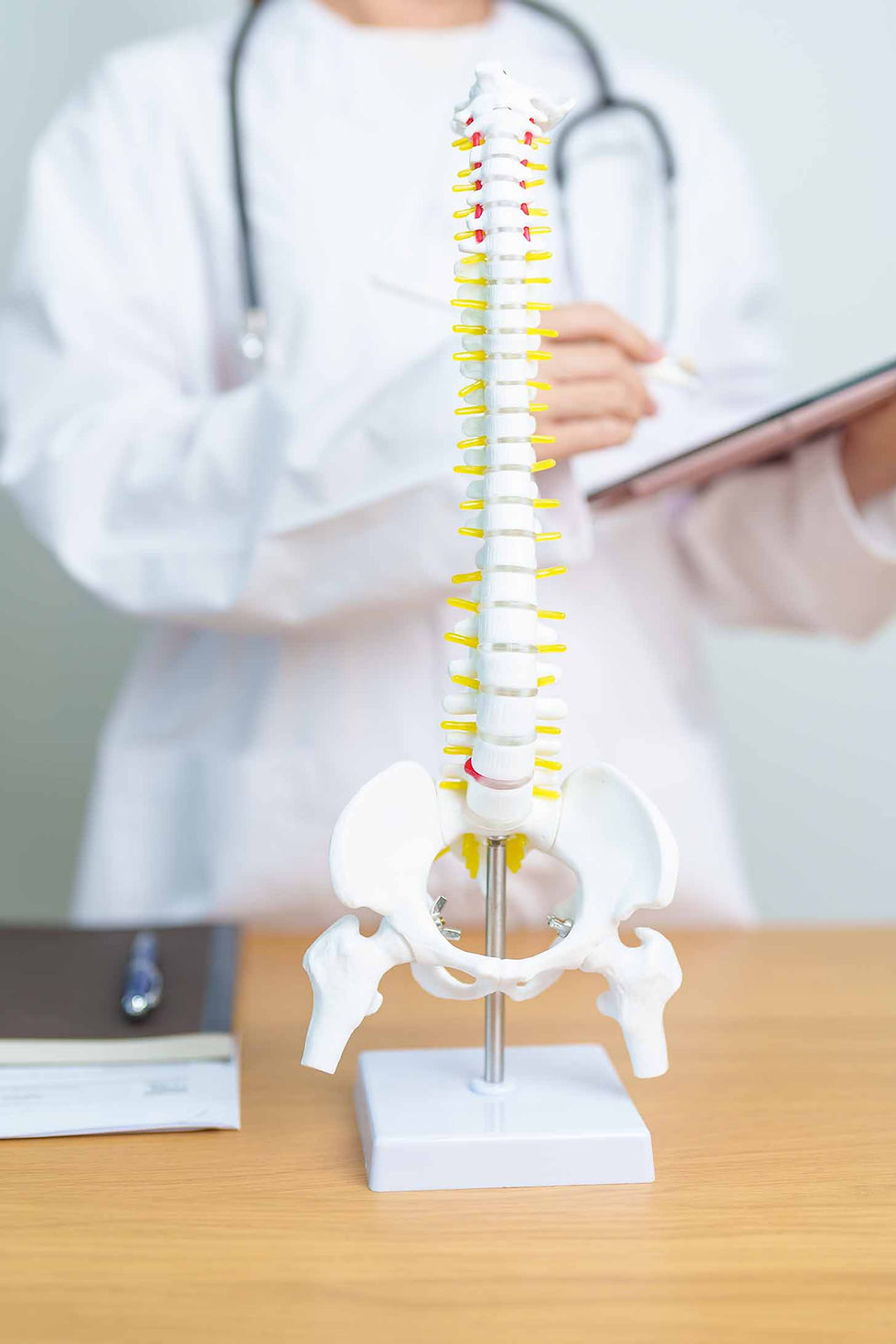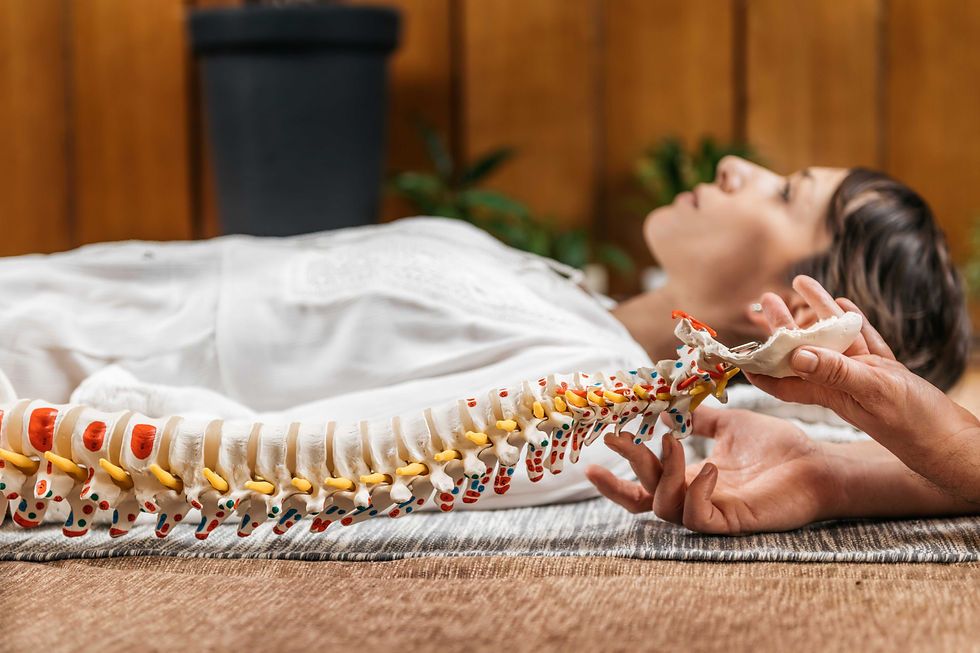

Treatment for Traumatic Spinal Fractures
We also offer spinal fracture treatment in AZ for more severe fractures, such as those occurring from car accidents or falls from a great height.
In these instances a combination of techniques may be needed to decompress affected nerves and nerve roots and to stabilize the spine.
Common Procedures for Severe Fractures
These often include:
-
A laminectomy (removal of the lamina or back part of the vertebra)
-
A corpectomy (removal of the vertebral body)
-
Spinal instrumentation (insertion of rods, screws, and plates to support healing)
-
Spinal fusion
Recovery times for such surgical procedures vary, but Dr. Baig will ensure you understand what to expect to help you take control of your rehabilitation.


The Superior Choice in Treatment for Spinal Compression Fractures in Arizona
At Desert Spine and Scoliosis Center, we understand the various types of treatments available for spinal fracture treatment in Arizona, and we can help recommend the right option for your unique situation. With a full range of advanced and minimally invasive options available to you, we make sure that your care plan is always tailored to the severity of your fracture, age, bone density, lifestyle, and goals.
The treatment recommended for compression fractures varies depending on the extent of the injury and how it’s affecting your quality of life.
Nonsurgical treatments for compression fractures may include modifying your activities so as not to exacerbate pain, taking pain medications, and/or wearing a temporary back brace.
While healing times vary, compression fractures take about two to three months to fully heal. Surgical treatment for compression fractures, when clinically indicated, usually involves either lumbar fusion surgery and other minimally-invasive surgical techniques.
Lumbar fusion surgery involves fusing or joining the vertebral bones together to repair fractures, reduce spinal pressure, and correct movement abnormalities. Minimally invasive treatment may involve treating the damaged vertebrae through a small incision using endoscopic techniques.
Dr. Baig can advise you which surgical option is most appropriate for your condition – contact us now for advice from our spine fracture specialists in Arizona.

Get Expert Help for Your Spinal Fracture in Phoenix
Dr. Baig is skilled and experienced in multiple forms of decompression and spinal fusion surgery, including less invasive lateral access spinal fusion surgery.
Desert Spine and Scoliosis Center offers specialist spine fracture treatment in Arizona. With a focus on providing every patient a comprehensive evaluation and educating them about their condition and options, we ensure that care comes first. Ready to get relief from spinal-fracture-associated-pain? We invite you to contact us and begin optimizing your bone health with our in-office bone health clinic today.

WHAT OUR PATIENTS SAY
We wanted to take a moment to express our heartfelt gratitude to our patients who take the time to leave a review about their experience at our practice.
Your kind words and feedback are greatly appreciated by our entire team, and your review helps other patients make an informed decision about where to turn to for care.
Thanks again for sharing your experience with others. You are making a difference.
T.M. ~ Actual Patient
"Dr Baig and his team are phenomenal. I had a compressed nerve due to a bulging disc and was able to be seen relatively quickly. Surgery was quick and flawless and I have no complaints at all. I truly appreciated how fast they worked to get me seen and out of all the pain I was in! Highly recommend them."
A.H. ~ Actual Patient
"Dr Baig literally changed my life for the better. I had a severely pinched nerve in my neck and needed to get surgery. Immediately at my first consult I felt comfortable and in good hands. I even walked away with a smile on my face during that scary time.
Surgery day couldn’t have gone better. The team he had also had a great bedside manner and helped keep me calm.
After the surgery and in the recovery room, he came in and checked on me and made sure I was all good before releasing me."
S.D. ~ Actual Patient
"Dr Baig was going to be my second opinion for an upcoming scheduled spinal surgery. After my appointment, he will be my surgeon. He gave me a lot of information that was lacking from my other doctors. I felt very comfortable with Dr Baig and his entire office staff. Looking forward to living pain free after we strengthen my bones. It’s going to be a permanent fix and not a bandaid."
Consult Our Back Surgeons in Phoenix
Back pain can often be a result of an accident, injury, or congenital conditions such as scoliosis. Certain forms of back pain can be a result of the natural aging process, including conditions such as disc protrusion and spinal stenosis.
Today, advancements in imaging, and non surgical techniques have led to more treatment options than ever before, allowing us to return our patients the life they once knew…usually without the need for invasive spine surgery.
Typically, back surgeons in Phoenix offer one type of help, even though there are many others available. When you work with Dr. Baig at the Desert Spine and Scoliosis Center, you can rest assured that everything is on the table when it comes to potential treatments that are accepted by the medical world.
CONTACT US
LOCATIONS
Conservative care you can trust, with multiple locations in the valley!
Just how ‘minimal’ is minimally invasive spine surgery?
Book your appointment today and we'll be happy to educate you!
As a top-rated spine specialist, Dr. Baig understands that this complicated part of the body can lead to many different problems, and each possibility will be considered before deciding on a treatment protocol.
Get answers, get help, get back to a better quality of life––schedule an appointment today.

Get maximum relief with minimal risk

MINIMALLY INVASIVE
SPINE PROCEDURES
ENDOSCOPIC
SPINE SURGERY
STEREOTACTIC
SPINE PROCEDURES
NON-SURGICAL
TREATMENT OPTIONS

We Also Treat Compression Fractures
Compression fractures occur when one or more vertebrae in the spine collapse or fracture under pressure, often due to osteoporosis. Our osteoporosis patients are very close to our hearts, and we do our best to prevent painful compression fractures and to treat fractures that do occur with the most advanced, effective and least invasive procedures available.
Common Signs & Symptoms of a Compression Fracture:
-
Sudden back pain, especially after minor trauma
-
Worsening pain with movement, bending, or standing
-
Loss of height or hunched posture
-
In severe cases, difficulty breathing or digestive problems
FOR COMPASSIONATE COMPRESSION FRACTURE TREATMENT IN PHOENIX, CONTACT DESERT SPINE AND SCOLIOSIS CENTER TODAY.


.png)
Compassionate, Expert Spinal Compression Fracture Treatment in Arizona
We Treat Spinal Fractures
At Desert Spine and Scoliosis Center, Dr. Baig treats a variety of spinal fractures, ranging from painful compression fractures due to osteoporosis to the severe types of fractures that occur from car accidents or falls from a great height.
Whether you’re dealing with a compression fracture or a traumatic injury, Dr. Baig will always recommend the least invasive treatment option possible. He will only recommend surgery where less invasive treatment fails, or where conservative management is not possible.
_PNG.png)



